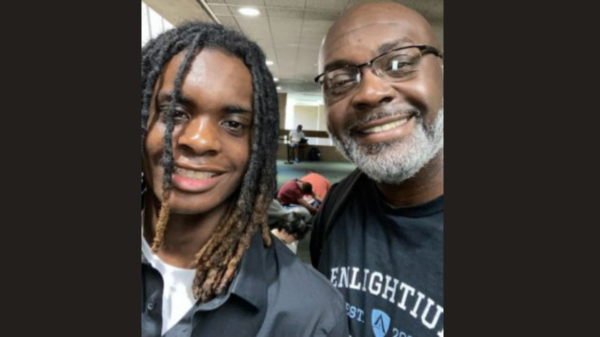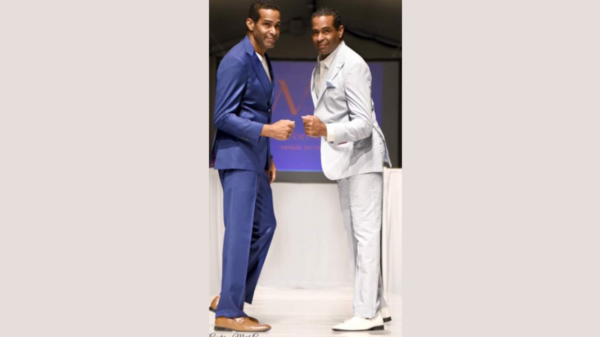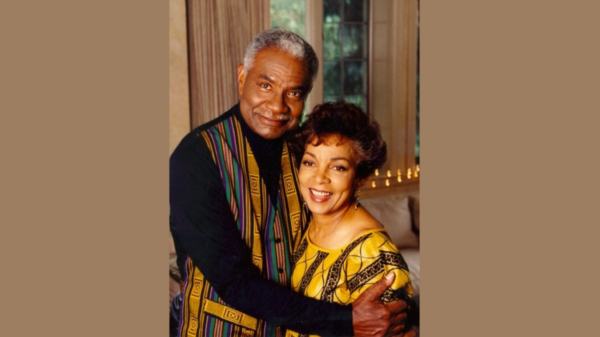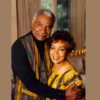By Vincent L. Hall

While Critical Race Theory is undoubtedly the buzzword of these times, let me introduce you to a different and lesser-known counterargument. In a scholarly piece, he wrote in 2017, Dr. Duane Loynes Sr. introduces us to Critical Race Theology.
Dr. Duane T. Loynes Sr. is an Urban Studies and Africana Studies professor at Rhodes College. He resides in Memphis, Tennessee, with his wife Ericka and their son Duane Jr., and is an active member of Mississippi Boulevard Christian Church (Disciples of Christ).
Although right-wing cynics and rabid Trump worshippers point to CRT as the greatest evil, there is another CRT you should know
First, listen to how Dr. Loynes started his scholarly work.
“The relationship between Christianity and people of color in the United States has been characterized by injustice. For example, in his classic Narrative of the Life of Frederick Douglass, an American Slave, Frederick Douglass described the Christianity of his day as a “corrupt, slaveholding, women-whipping, cradle-plundering, partial and hypocritical Christianity.”
Writing about how Christianity has been deployed in North America, Douglass reflects on some obvious oddities in the slave master’s theology.
- “The man who wields the blood-clotted cowskin during the week fills the pulpit on Sunday, claiming to be a minister of the meek and lowly Jesus.
- The man who robs me of my earnings at the end of each week meets me as a class-leader on Sunday morning to show me the way of life and the path of salvation.
- He who sells my sister, for purposes of prostitution stands forth as the pious advocate of purity.
- He who proclaims it a religious duty to read the Bible denies me the right to learn to read the name of the God who made me.
- He, the religious advocate of marriage, robs whole millions of its sacred influence and leaves them to the ravages of wholesale pollution.
- The warm defender of the sacredness of the family relation is the same that scatters whole families — sundering husbands and wives, parents and children, sisters and brothers — leaving the hut vacant and the hearth desolate.
- We see the thief preaching against theft and the adulterer against adultery.
- We have men sold to build churches, women sold to support the gospel, and babes sold to purchase Bibles for the poor heathen! All for the glory of God and the good of souls!
- The slave auctioneer’s bell and the church-going bell chime in with each other, and the bitter cries of the heartbroken slave are drowned in the religious shouts of his pious master.
- Revivals of religion and revivals in the slave-trade go hand in hand together.
- The slave prison and the church stand near each other. The clanking of fetters, the rattling of chains in the prison, and the pious psalm and solemn prayer in the church, may be heardsimultaneously.

Frederick Douglass’ misery-filled musings are hard to hear, but they were much
harder to live.
Critical Race Theology, according to Loynes, contends that any theology that seeks to speak to the marginalization of people and systems of inequity is valid.
“A critical race theology would articulate a methodology in which each discipline was oriented toward fashioning an intelligible understanding of the Christian faith. Christianity must be presented in a manner that generates informed dialogue about true racial equality as the fruit of genuine Christianity.
He ends his eloquent missive with a final thought I would leave to you. To construct a critical race theology, a scriptural interpretation of racial equality must be the priority and the goal.
America’s history must be told truthfully and with candor. We must mention the name of slaveowners like George Washington, Thomas Jefferson, James Madison, and nine other sitting U.S. presidents who owned slaves.
Likewise, we have to tell the stories of death-defying abolitionists like John Brown, William Lloyd Garrison, and Harriet Beecher Stowe. There are stories of how local United Methodists at SMU segregated their halls long before most in Texas.
Both versions of CRT hinge on the truth. It’s time to tell it.
Vincent L. Hall is an author, activist, and an award-winning columnist.









You must be logged in to post a comment Login